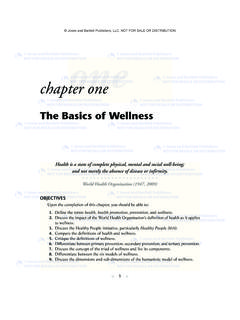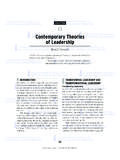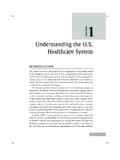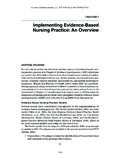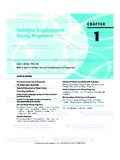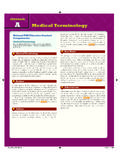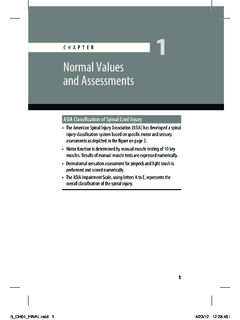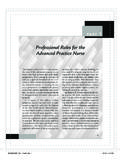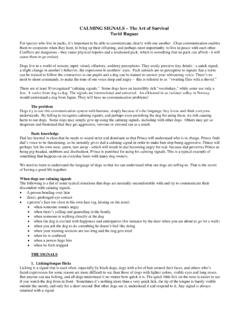Transcription of NOT FOR SALE OR DISTRIBUTION © Jones & …
1 After completing this chapter, the student should be able to:Learning Objectives4 Foundations of Ethical Nursing PracticeKaren Rich and Janie B. Butts1. Discuss the meaning of key terms associated with ethical nursing Compare and contrast ethical theories and approaches that might be used in nursing Discuss each of the popular bioethical principles as they relate to nursing practice: autonomy, beneficence, nonmaleficence, and Justify the importance of the Code of Ethics for Nurses for professional nursing Explain how nurses can identify and analyze dilemmas that occur in nursing and technological advances, economic realities, pluralistic worldviews, and global communication make it impossible for nurses to ignore important ethical issues in the world community, their individual lives, and their work.
2 As controversial and sensitive ethical issues continue to challenge nurses and other healthcare professionals, many professionals have begun to develop an appreciation for personal philosophies of ethics and the diverse viewpoints of ethical directives are not clearly evident, which leads some people to argue that ethics can be based merely on personal opinions. However, if nurses are to enter into the global dialogue about ethics, they must do more than practice ethics based simply on their personal opinions, their intuition, or the unexamined beliefs that are proposed by other people.
3 It is important for nurses to have a basic understanding of the various concepts, theories, approaches, and principles used in ethics throughout history and to identify and analyze ethical issues and dilemmas that are relevant to nurses in this cen-tury. Mature ethical sensitivities are critical to professional nursing Terms and Concepts Ethics Morals Bioethics Nursing ethics Moral reasoning Wholeness of character Integrity Basic dignity Personal dignity Virtues Deontology Utilitarianism Ethic of care Ethical principlism Autonomy Beneficence Paternalism Nonmaleficence Justice Ethical dilemma Moral 10522/09/12 11:33 AM Jones & Bartlett Learning, LLC.
4 NOT FOR SALE OR DISTRIBUTION . Jones & Bartlett Learning, LLCNOT FOR SALE OR DISTRIBUTION Jones & Bartlett Learning, LLCNOT FOR SALE OR DISTRIBUTION Jones & Bartlett Learning, LLCNOT FOR SALE OR DISTRIBUTION Jones & Bartlett Learning, LLCNOT FOR SALE OR DISTRIBUTION Jones & Bartlett Learning, LLCNOT FOR SALE OR DISTRIBUTION Jones & Bartlett Learning, LLCNOT FOR SALE OR DISTRIBUTION Jones & Bartlett Learning, LLCNOT FOR SALE OR DISTRIBUTION Jones & Bartlett Learning, LLCNOT FOR SALE OR DISTRIBUTION Jones & Bartlett Learning, LLCNOT FOR SALE OR DISTRIBUTION Jones & Bartlett Learning, LLCNOT FOR SALE OR DISTRIBUTION Jones & Bartlett Learning, LLCNOT FOR SALE OR DISTRIBUTION Jones & Bartlett Learning, LLCNOT FOR SALE OR DISTRIBUTION Jones & Bartlett Learning, LLCNOT FOR SALE OR DISTRIBUTION Jones & Bartlett Learning, LLCNOT FOR SALE OR DISTRIBUTION Jones & Bartlett Learning, LLCNOT FOR SALE OR DISTRIBUTION Jones & Bartlett Learning, LLCNOT FOR SALE OR DISTRIBUTION Jones & Bartlett Learning, LLCNOT FOR SALE OR DISTRIBUTION Jones & Bartlett Learning.
5 LLCNOT FOR SALE OR DISTRIBUTION Jones & Bartlett Learning, LLCNOT FOR SALE OR DISTRIBUTION Jones & Bartlett Learning, LLCNOT FOR SALE OR DISTRIBUTIONE thics in everyday LifeEthics, a branch of philosophy, means different things to different people. When the term is narrowly defined according to its original use, ethics is the study of ideal human behavior and ideal ways of being. The approaches to ethics and the meanings of ethically related concepts have varied over time among philosophers and ethicists. As a philosophical discipline of study, ethics is a systematic approach to understanding, analyz-ing, and distinguishing matters of right and wrong, good and bad, and admirable and deplorable as they exist along a continuum and as they relate to the well-being of and the relationships among sentient beings.
6 Ethical determinations are applied through the use of formal theories, approaches, and codes of contrasted with the term ethics, morals are specific beliefs, behaviors, and ways of being based on personal judgments derived from one s ethics. One s morals are judged to be good or bad through systematic ethical analysis. Because the word ethics is used when one might literally be referring to a situ-ation of morals, the process-related conception of ethics is sometimes over-looked today. People often use the word ethics when referring to a collection of actual beliefs and behaviors, thereby using the terms ethics and morals in essentially synonymous terms bioethics and healthcare ethics are sometimes used interchangeably in the literature.
7 Bioethics is a specific domain of ethics that is focused on moral issues in the field of health care. Callahan (1995) calls it the intersec-tion of ethics and the life sciences but also an academic discipline (p. 248). Bioethics has evolved into a discipline all its own as a result of life -and-death moral dilemmas encountered by physicians, nurses, other healthcare profes-sionals, patients, and his book The Birth of Bioethics, Albert Jonsen (1998) designates a span of 40 years, from 1947 to 1987, as the era when bioethics was evolving as a discipline.
8 This era began with the Nuremberg Tribunal in 1947, when Nazi physicians were charged and convicted for the murderous and tortuous war crimes that these physicians labeled as scientific experiments during the early 1940s. The 10 judgments in the final court ruling of the Nazi trial provided the basis for the worldwide Nuremberg Code of 1947. This code became a document to protect human subjects during research and 1950s and 1960s were preliminary years before the actual birth of bioethics. A transformation was occurring during these years as technology Mature ethical sensitivities are critical to professional nursing ChaPTER 4 Foundations of Ethical Nursing 10622/09/12 11:33 AM Jones & Bartlett Learning, LLC.
9 NOT FOR SALE OR DISTRIBUTION . Jones & Bartlett Learning, LLCNOT FOR SALE OR DISTRIBUTION Jones & Bartlett Learning, LLCNOT FOR SALE OR DISTRIBUTION Jones & Bartlett Learning, LLCNOT FOR SALE OR DISTRIBUTION Jones & Bartlett Learning, LLCNOT FOR SALE OR DISTRIBUTION Jones & Bartlett Learning, LLCNOT FOR SALE OR DISTRIBUTION Jones & Bartlett Learning, LLCNOT FOR SALE OR DISTRIBUTION Jones & Bartlett Learning, LLCNOT FOR SALE OR DISTRIBUTION Jones & Bartlett Learning, LLCNOT FOR SALE OR DISTRIBUTION Jones & Bartlett Learning, LLCNOT FOR SALE OR DISTRIBUTION Jones & Bartlett Learning, LLCNOT FOR SALE OR DISTRIBUTION Jones & Bartlett Learning, LLCNOT FOR SALE OR DISTRIBUTION Jones & Bartlett Learning, LLCNOT FOR SALE OR DISTRIBUTION Jones & Bartlett Learning, LLCNOT FOR SALE OR DISTRIBUTION Jones & Bartlett Learning, LLCNOT FOR SALE OR DISTRIBUTION Jones & Bartlett Learning, LLCNOT FOR SALE OR DISTRIBUTION Jones & Bartlett Learning, LLCNOT FOR SALE OR DISTRIBUTION Jones & Bartlett Learning, LLCNOT FOR SALE OR DISTRIBUTION Jones & Bartlett Learning.
10 LLCNOT FOR SALE OR DISTRIBUTION Jones & Bartlett Learning, LLCNOT FOR SALE OR DISTRIBUTION Jones & Bartlett Learning, LLCNOT FOR SALE OR DISTRIBUTION advanced. In this era, a new ethic was emerging about life and extension of life through technology. The development of the polio vaccine, organ transplanta-tion, life support, and many other advances occurred. Scientists and physicians were forced to ask questions: Who should live? Who should die? Who should decide? (Jonsen, 1998, p. 11). Many conferences and workshops during the 1960s and 1970s addressed issues surrounding life and 1970, the public, physicians, and researchers were referring to these phenomena as bioethics (Johnstone, 1999).
